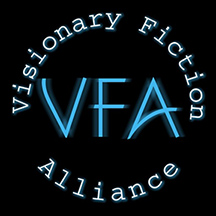I became intrigued by Philip K. Dick after hearing Dr. Jeff Kripal discuss his book Mutants and Mystics: Science Fiction, Superhero Comics, and the Paranormal. It inspired a post and my fascination with finding other creatives who’ve had mystical experiences. I recently completed reading Philip K. Dick’s book, Valis, a semi-autobiographical account of his own spiritual experience. Dick’s terminology is different, but our experiences were similar. While reading the book, I felt as if I were having a conversation with someone who understood me.
In Valis, we follow Horselover Fat, Dick’s alter ego that he calls his theophany. He describes it as being struck by a pink beam of light that downloaded information into his brain. He came to the realization that the entirety of the universe is, in essence, information. Afterward, he experiences a precognitive awareness about his son being sick, and it turns out to be true. PKD spends most of the book attempting to figure out the meaning of what had happened to him. Further complicating matters is that he has difficulty comprehending why he can save his son but can do nothing to save a friend who has terminal cancer. During his quest towards enlightenment, friends view him as having gone mad.
Spiritual insights pepper the story and flow through both the narration and entries in Horselover Fat’s exegesis. PDK’s use of both first and third-person narrative gives the narrator distance, allowing a more objective view about his spiritual experience. The inner dialogue between the two voices creates a Socratic feel, an odyssey about self-inquiry that forces out questions about previously held beliefs.
Birds of a Feather
Like Philip K. Dick, I spent years trying to understand what had happened to me. At times, I felt as though I were going crazy. After my kundalini awakening, a psychological torrent of fears and past hurts flooded my consciousness, forcing me to deal with them. I had to eventually accept that everything I held as truth my whole life was a myth. I then wondered what the point of life was.
Here are some of the questions I asked:
What does it mean?
Was it God?
What is God?
Are we living in a live organism?
Am I plugged into a giant hologram?
Is what I see every day reality?
Is this part of some clandestine psychological operation?
I had my kundalini awakening when I was thirty. I’m now forty-six. I haven’t answered any of the above questions with any certainty. This self-inquiry eventually led me to becoming a spiritual agnostic. Getting caught up in trying to find absolute answers to questions can drive you insane if you let it!
At first, Philip K. Dick believed that what had happened to him resulted from medication he’d taken for an impacted wisdom tooth. However, when his visions persisted, he knew the explanation was implausible. I don’t take drugs, and my experience happened while I was meditating, so I knew my experience wasn’t a reaction to any drug!
“I experienced an invasion of my mind by a transcendentally rational mind, as if I had been insane all my life and suddenly I had become sane.” Philip K. Dick
Looking back, it seems as though I’d lived my first thirty years in a delusional state. I now have clarity of mind, something I never had before as I suffered from clinical depression and a host of other psychological disturbances. Today, I’m no longer depressed and those other conditions that have plagued me have also faded. Meditation keeps me in balance.
“Alike and equal are not the same thing, you have to find your own beat.” Meg from Wrinkle In Time
I would’ve either been dead or on antidepressants if it weren’t for seeing the proverbial light. So dealing with a little madness along the way to spiritual recovery was worth it!
“Many claim to speak for god, but there is only one god and that god is man himself.” Phillip K. Dick
We can all connect to a greater reality without a guru to assist us. U.G. Krishnamurti made similar statements, which is why he referred to himself as an anti-guru. Through my own journey, I’ve reached a similar state of mind and don’t follow any gurus or religion.
“You are the authority.” Philip K. Dick
Being a skeptic is actually the safest way to experience life as I’m not easily led astray or manipulated. I emerged as a stronger person from my experience and that’s one statement I can make absolutely.
Love and light,
Eleni



